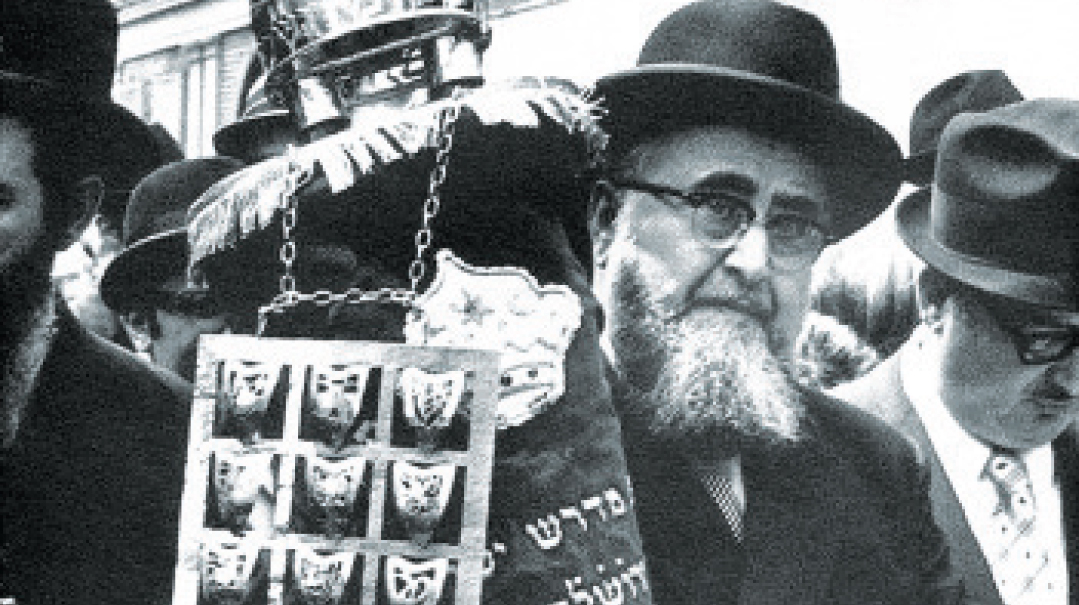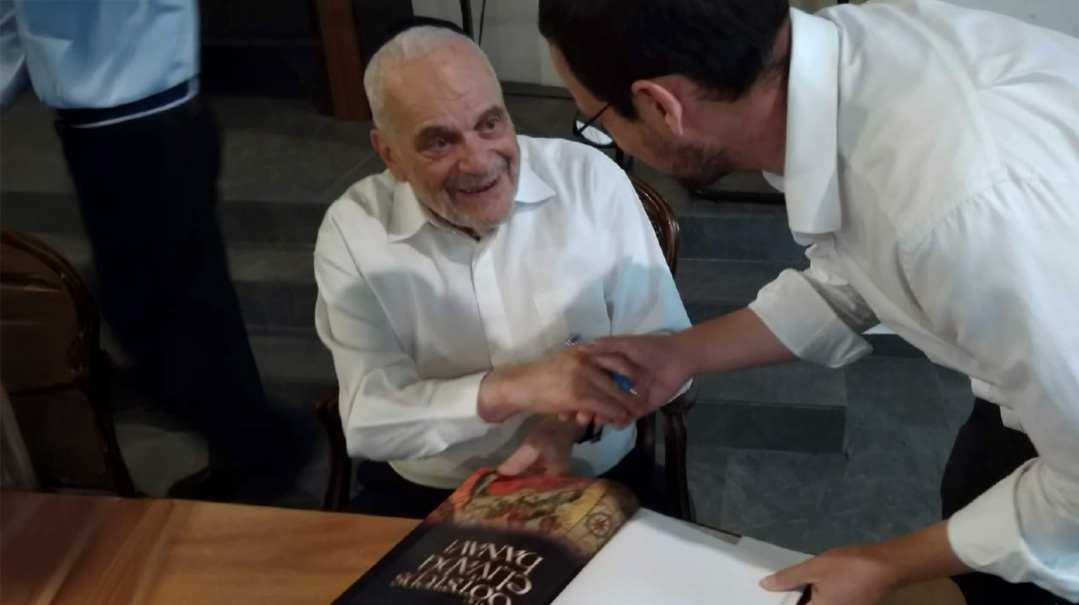A Privilege, Not a Burden

He was a giant who didn't fit into any of the familiar boxes, a fearless mouthpiece of timeless Torah truths

It’s a time-honored tradition to start tribute articles with a pithy remark or a short anecdote that neatly encapsulates the character of the person the author is about to introduce. But it's nearly impossible to single out one vort or story that could encapsulate Rav Shimon Schwab, whose 25th yahrtzeit, on 14 Adar I, was commemorated on Purim this year.
He was a giant who didn't fit into any of the familiar boxes, a fearless mouthpiece of timeless Torah truths whose message was not limited to the trials of a specific locale or generation.
Yekkeh, yeshivahhman, rav, lecturer, author, father — all fall short of summing up the essence of a man who managed to distill the best of many worlds into a single, intense life. Rav Schwab used to quip that a single mesorah is insufficient to deal with the complexities of the modern world; today's Jew needs the learning of the Litvaks, the joy of the Chassidim, the scrupulousness of the German Jews, the generosity of the Sephardim, and the simple sincerity of old-time American Jews.
Himself the product of more than one educational stream, perhaps his most precious legacy to a Torah world under threat is his joyous wonder at the precious gift that is Torah and his supreme confidence in its ability to light the way for all times.
A Privilege, Not a Burden
Rav Schwab’s son, Rav Meyer, who has served as dean of Bais Yaakov of Denver for 52 years, learned from his father the critical ingredient of successful chinuch: teaching our young people pride in their heritage.
In 1952, young Meyer read avidly, along with the rest of the world, about the grandiose coronation festivities of a young princess named Elizabeth, who at age 26 was assuming the throne of the United Kingdom and the Commonwealth. The crown jewels, it was reported, weighed some 20 pounds, and the new queen would wear them for several hours during the ceremony at Westminster Abbey. “I didn't understand how a young woman could sit for hours under that kind of weight. My father said, 'You know, you're right; they're very heavy. But I guarantee that at that moment she wouldn't change places with anyone in the world.' " For Rav Meyer, his father's message was clear — and is one he strives to impart to generations of students: It may not be easy to be different, but you become royal.
A Young Mind
Rav Schwab, for all his brilliance, was never static. He learned and grew along with his congregants and children.
"He used to say that the sign of an old man is that once he makes up his mind, he doesn’t change it again," remembers his eldest son, Rav Moshe Schwab, a long-time Boro Park resident. "His was a youthful mind. He was willing to make changes if he saw he was wrong in certain situations."
Rav Schwab spent many years working on the problem of “the missing 168 years,” a discrepancy between the timeline of Chazal and the academically accepted chronology of Persian history around the beginning of Bayis Sheini . After years of work and advancing several potential solutions, he decided that none of his answers were sufficient. "I would rather be honest and leave a good question open, than risk giving a wrong answer," he wrote.
While he believed that secular wisdom had value as a manifestation of Hashem’s creation, Torah’s eternal truth far surpassed any scientific merit, and one had to be prepared to offer one’s intellect as an Akeidah, if unable to reconcile a Torah truth with current scientific understanding.
This intellectual honesty was a hallmark of his life's work, says Rav Moshe. Perhaps the most public instance in which he evinced this iron commitment to truth was his evolving position on the balance of Torah and secular wisdom in a Jew's life. A product of Frankfurt, home of Rav Hirsch and bastion of Torah im derech eretz, he gravitated at a young age to the Eastern European yeshivos with their exclusive immersion in Torah. Fired by their zeal, he wrote a book titled Heimkehr Ins Judentum (Coming Home to Judaism), arguing that Torah im derech eretz had been a provisional response to the threat of the liberal movements, but it wasn’t suited to the long-term spiritual health of the community. Consistent with that position, he became one of the few rabbis in Germany without a university education. (He had, in fact, not even graduated high school.)
Later in life, he concluded that while the Jewish community needed the Torah-only approach of the yeshivah world, that was not the only path; the Torah-true balabos who engaged with the world while keeping Torah as his focus was also a hero to his people. Articulating this duality, he penned a book called Eilu v'Eilu, which validated the merit and necessity of both paths.
"He was sincerely of the opinion that Torah im derech eretz, if applied properly, was not an excuse for watered down Judaism. It is a challenge for intensified Judaism," clarifies Rav Moshe. "And it is applicable to all times and all generations." Rav Schwab was greatly pained by those, whether on the left or the right, who considered this venerable path to be a shortcut.
Oops! We could not locate your form.












